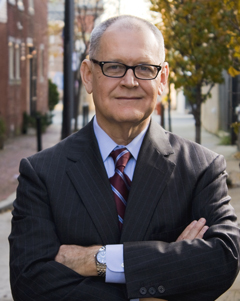Attorney General JB Van Hollen is seeking to appeal last Friday's order halting implementation of Governor Walker's union-busting bill. While the trial court found that the bill's rushed passage likely violated state Open Meetings laws, the Court of Appeals is being asked to consider whether that decision conflicted with separation of powers principles.
As CMD has reported, on March 18 Dane County Judge Maryann Sumi found that legislators had likely violated Open Meetings laws by providing inadequate notice for the March 9 Joint Conference Committee meeting and subsequent Senate vote that amended and passed Gov. Walker's controversial bill. In making her decision, Judge Sumi noted that the law states "any actions taken at a meeting of a governmental body held in violation [of Open Meetings law] are voidable," provided that the District Attorney brings the suit and the public interest in voiding the bill outweighs any public interest in upholding it. Sumi emphasized the Constitutionally-recognized public interest in ensuring open government, stating "we are entitled by law to free and open access to governmental meetings, and especially governmental meetings that lead to the resolution of very highly conflicted and controversial matters."

 Last January, the
Last January, the  Is the health care reform law a good deal for Americans, or is it so badly flawed that Congress should repeal it? Now that the measure is one year old -- President Obama signed the Patient Protection and Affordable Care Act to law on March 23, 2010 -- I humbly suggest we attempt an unbiased assessment of what the law really means to us, and where we need to go from here.
Is the health care reform law a good deal for Americans, or is it so badly flawed that Congress should repeal it? Now that the measure is one year old -- President Obama signed the Patient Protection and Affordable Care Act to law on March 23, 2010 -- I humbly suggest we attempt an unbiased assessment of what the law really means to us, and where we need to go from here.